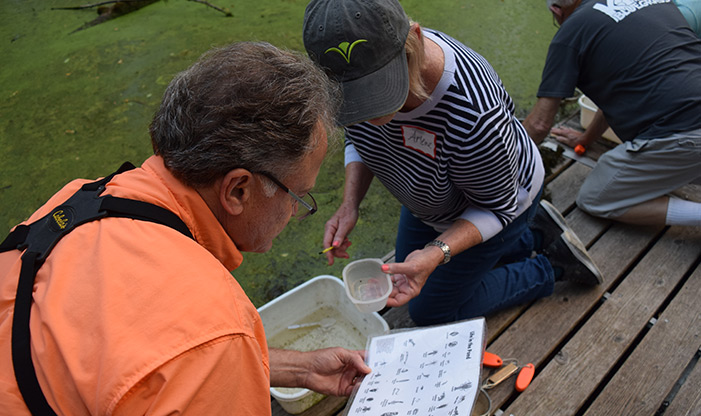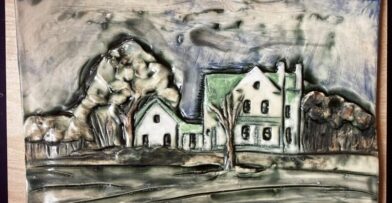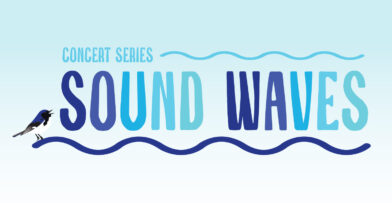This past September, we completed our third Wisconsin Master Naturalist volunteer training course, which prepared 22 new graduates to provide volunteer service in support of the state’s natural resources. The Wisconsin Master Naturalist program “promotes awareness, understanding, and stewardship of the natural environment by developing a network of well-informed volunteers dedicated to conservation service within their communities.” The program is facilitated by the University of Wisconsin-Madison Division of Extension. Schlitz Audubon participates in the program as a host organization by offering training and service opportunities in the areas of environmental education, stewardship, and citizen science.
How Master Naturalist Training Works
Schlitz Audubon began training Master Naturalist volunteers in 2017 and continues to offer yearly training courses, consisting of a six-week session of 40 hours of instruction in the classroom and in the field. Course participants learn from naturalists and educators from Schlitz Audubon and guest presenters from state and local organizations, such as the WDNR. The variety of professional instructors guide volunteers to discover how they can pursue their own interests while developing skills for their volunteer work. Participants receive an overview in the natural history of Wisconsin, covering a wide range of topics such as geology, wildlife, plants, ecology, water, and more. The diversity of content creates a broad knowledge base that volunteers can draw from to make connections in their volunteer work.
Throughout the course, participants learn from hands-on experiences. Most classes have an outdoor component, with a guided hike or activity out on the trails. This year’s participants learned how to identify birds with binoculars, sample our ponds for macroinvertebrates, and differentiate different tree species using a dichotomous key. They also explored other ecosystems during field trips to the Cedarburg Bog and the Northern Kettle Moraine State Forest.
Capstone Projects
Course participants practice their newly acquired knowledge and skills by designing a capstone project in environmental education/interpretation, stewardship, or citizen science. Capstone projects are completed in the community in about half of a day outside of class time. During the final class, everyone makes a short presentation to share what they did and what they learned along the way. This year, one capstone project explored land stewardship by participating in seed collecting at a local natural area’s restoration of a rare remnant prairie. Another capstone project investigated how to monitor frogs for the WDNR’s longstanding citizen science project, the Wisconsin Frog and Toad Survey. In the area of education, a group created a picture book for our Nature Preschool to identify the plants and animals found on our trails. They even added a component to teach the species names in braille! The projects demonstrate the dedication and creativity within a passionate group of volunteers. They also have a lot of fun in the process.
Volunteering in the Community
After graduating, volunteers must complete a minimum of 40 hours of volunteer service and eight hours of advanced training each year to maintain certification as a Wisconsin Master Naturalist. Service and advanced training hours can take place at many organizations across the state, such as nature centers, state parks, and local non-profits. Graduates gain access to the program’s website portal, which provides a vast network of resources to keep volunteers connected and engaged. Since 2017, Schlitz Audubon Master Naturalists have contributed over 6300 hours of service to promote our state’s natural resources!
If you have visited the Center on a weekend, you may have encountered a Master Naturalist. Many graduates educate our visitors as weekend Nature Ambassadors, leading guided hikes and handling live reptiles and amphibians. You may also see them out on trails removing invasive species as land stewards or monitoring wildlife populations in various citizen science projects. Our conservation department has collected valuable data on Eastern Bluebirds, Monarch Butterflies, wetland life, and so much more, due in large part to our dedicated volunteers. Through citizen science, stewardship, and education, Wisconsin Master Naturalists are making a positive impact in the community.


